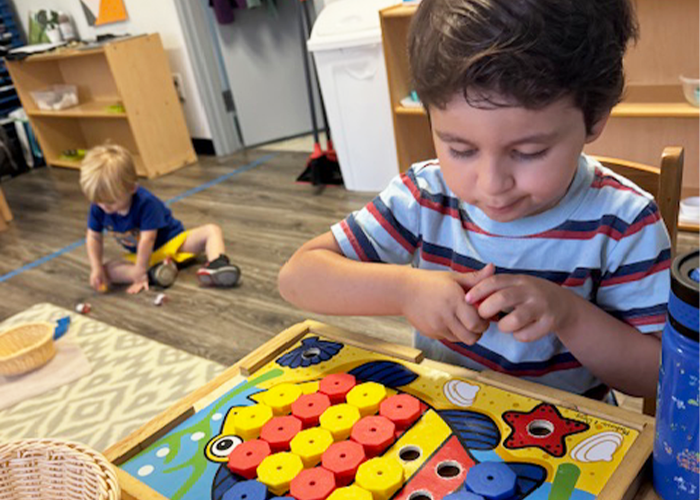Why Early Childhood Education Programs Are Essential for Child Development
- Kingwood Montessori

- Sep 4, 2025
- 3 min read

Parents often wonder how much of an impact early education really makes. After all, young children learn so much at home through everyday experiences. But research consistently shows that structured early childhood education programs play a vital role in shaping a child’s social, emotional, and intellectual growth. These programs do far more than prepare children for kindergarten—they lay the foundation for a lifetime of curiosity and confidence.
Building a Strong Learning Foundation
The early years are a time of rapid brain development. During this stage, children absorb information at lightning speed. High-quality early childhood education programs use this window of opportunity to introduce essential skills like problem-solving, cooperation, and communication. Instead of rote memorization, children learn through play, hands-on activities, and guided discovery.
For example, counting beads or pouring water in a Montessori classroom isn’t just fun. It teaches math readiness, fine motor control, and patience all at once. These simple activities spark a love for learning that traditional day care environments may not always emphasize.
Social and Emotional Growth
Children who attend structured programs learn much more than academics. They also practice empathy, patience, and respect for others. Working in small groups helps them share ideas, solve conflicts, and develop independence. These skills are just as important as reading and math because they shape how children interact with the world around them.
At Kingwood Montessori School, the focus on peace and respect ensures children feel valued. When a child feels safe and supported, they’re more likely to take risks, explore new challenges, and build resilience. That’s why parents who choose Montessori often see their children becoming confident, compassionate individuals.
Preparing for Elementary and Beyond
One of the biggest advantages of early childhood education programs is school readiness. Children who have early exposure to structured learning environments tend to transition more smoothly into elementary school. They’re used to following routines, listening to instructions, and managing tasks on their own.
Montessori classrooms go a step further by nurturing self-directed learning. Instead of a teacher leading every moment, children choose activities that match their interests and skill levels. This approach fosters independence and critical thinking—qualities that last long after preschool.
The Role of Play in Learning
Some parents worry that formal programs might push academics too early. The truth is, effective early education doesn’t eliminate play; it enhances it. Play is the language of childhood, and in Montessori, play is purposeful. Sorting objects, building towers, and practicing life skills like buttoning or sweeping all develop coordination and concentration.
By balancing fun and structure, children gain the confidence to explore while mastering skills they’ll use for years.
Why Montessori Stands Out
Not all early childhood education programs are the same. Montessori offers a unique blend of freedom and structure, giving children space to explore while gently guiding them toward mastery. With mixed-age classrooms, younger children learn from older peers, while older children reinforce their knowledge by helping others. This natural collaboration builds community and strengthens understanding.
Kingwood Montessori School provides this environment for toddlers, preschoolers, and elementary students. With peaceful classrooms, extended care options, and a strong focus on lifelong learning, it’s more than just early education—it’s an investment in the whole child.
Tips for Parents Considering Early Childhood Programs
Choosing the right program can feel overwhelming, but here are some simple steps to guide you:
Visit in person – Seeing the environment firsthand tells you more than brochures ever could.
Ask about teaching methods – Not all programs follow the same philosophy.
Look for a nurturing atmosphere – A warm, respectful setting supports learning as much as academics.
Think long-term – A program that nurtures independence and love of learning sets your child up for success.
FAQs
1. What’s the best age to start early childhood education programs?
Most children benefit from starting around age three, but toddler programs can help even earlier.
2. Do Montessori programs replace play with academics?
Not at all—play is integrated into learning, making it both fun and meaningful.
3. How do early programs impact future success?
They build confidence, social skills, and a strong academic foundation that helps children excel later in school.




Comments